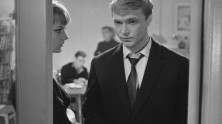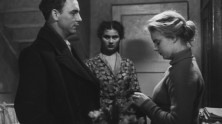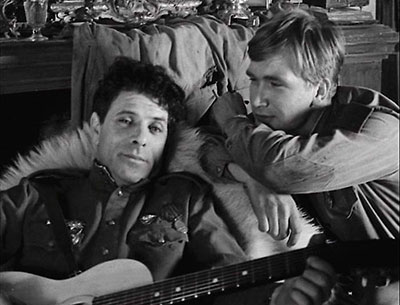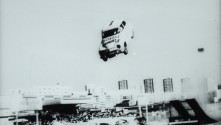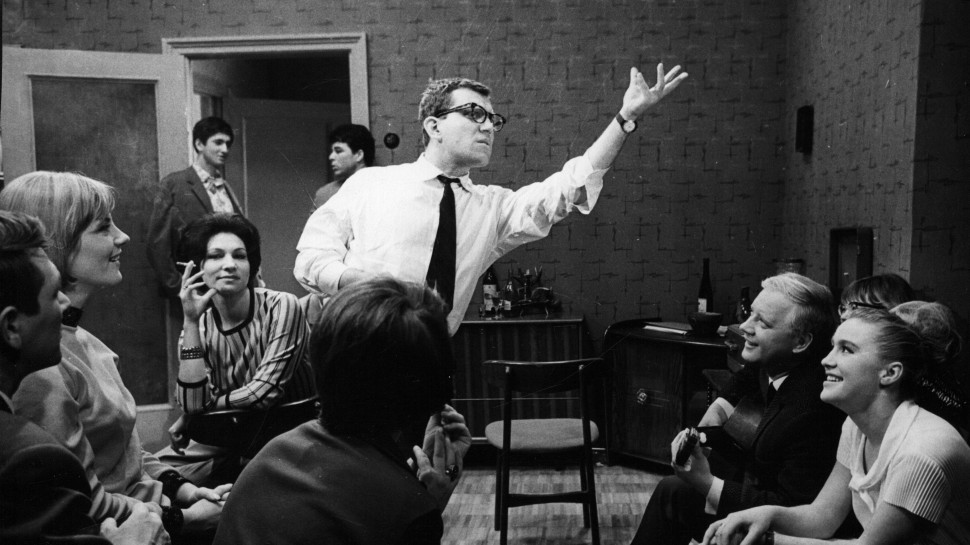
July Rain
(Iyulskiy dozhd)
Screening on Film
With Evgeniya Uralova, Aleksandr Belyavskiy, Yuriy Vizbor.
Soviet Union, 1966, 35mm, black & white, 107 min.
Russian with English subtitles.
A formidable opening: from left to right, and with just a few movements forward, the camera covers the diverse movement through the streets on a summer day in the old Soviet Union; some even take a glance directly at the camera as they walk by. The prodigious music clashes with the film’s pedestrian, documentary tone. And then, as if she were just another citizen walking in the crowd, we see a young, beautiful woman; she is Lena, the main character. At that point, fiction intrudes and this intelligent dialectic remains throughout a film that uses that poetic game as the basis for its remarkable power, a documentary exterior and a fictional interior to portray a mentality—the aftermath of Stalinism. – Roger Koza
Khutsiev has never come closer to his perfect vision of cinema than in the final scenes of July Rain, where the world, indeed, exists simultaneously on a number of levels, a number of temporal planes, crisscrossed in a complex audiovisual weave, colliding and drifting apart again in the most unexpected configurations and polygons... Of this, precisely––of the world's unexpected ambiguities, of the inexhaustibility of history––speak the strained, wary and standoffish looks exchanged between the veterans who cry, for the first time after twenty years of historical oblivion, in public, right in front of the Bolshoy Theater, and the youth, already weathered by school and family, already on their way out into the 1970s.... To each of them Khutsiev lends, for a moment, his unblinking, unromantic, unsentimental eye, free from illusions, and each of them discovers his own other; an epoch, a history, a future... – Miron Chernenko

